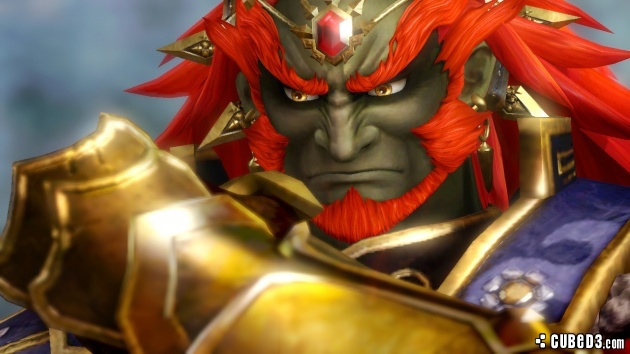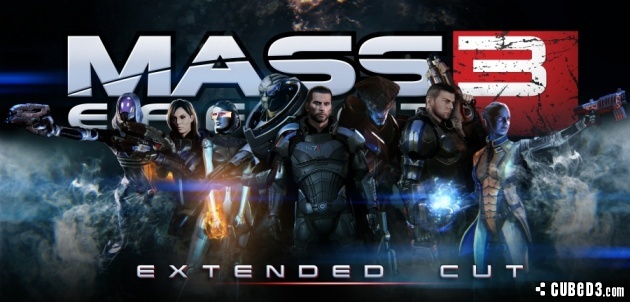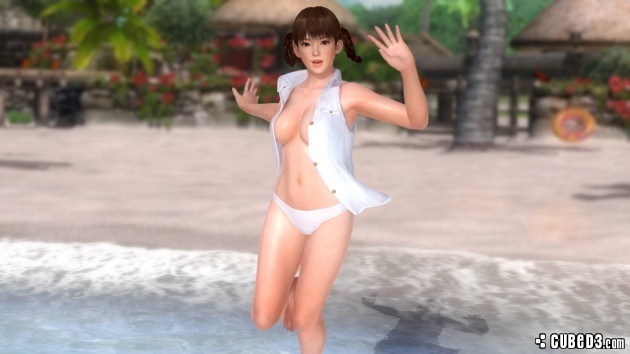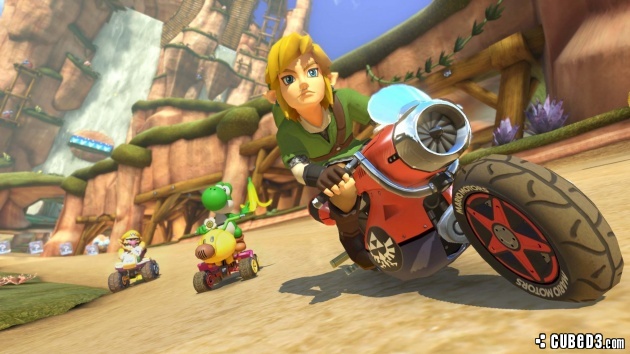A thing that has grown to be a bigger thing over the year in gaming ever since online functionality was put on our consoles has been downloadable content, DLC for short. The idea behind DLC might have, when it was introduced, been one that tickled many gamers of greatness to come. It has indeed offered some great heights, such as the very generous Hyrule Warriors DLC packs. Way too often, though, they are just content intentionally left out.
The issue appears when DLC obviously isn't there to serve the purpose of the consumers, but, rather, the publishers. The issue is when it is interfering with the actual experience. It can be everything from having to buy currency in MMORPGs due to ridiculous prices to "True Endings" being locked behind a paygate, forcing the consumer to cough up money to get to the conclusion. All in all, everything that takes away from the product bought.

Over the history of DLC there have been all kinds of shady things going on, with everything from Day One DLC to actual on-disc DLC that needed the player to pay extra to access everything they had supposedly already bought. It is clearly understandable that companies want to earn money on their games, especially when production costs increase and the prices are stale. Videogames have basically been the same price for a very long time while production costs and inflation have decreased the value of the money coming in. This means that either the publishers must increase the prices or increase the number of games sold. While increasing the prices directly might have a negative effect on sales overall as higher priced games might cause havoc, some did choose to increase the prices indirectly by offering half-finished games.
It is important to establish a difference between half-finished games and those that pretty much enforce micro-transactions or the buying of DLC to enjoy the game, and those titles that offer expansive DLC that adds to the main game rather than taking things from it to squeeze more money from people. It is important, yet hard, to differentiate these from each other. What to keep an eye on is to see when it was released. If a piece of DLC was released at the very same moment as the title in question came out, warning flags should immediately be raised, or if the game ends with a weird cliff-hanger and there is DLC that offers the conclusion to that. Then it can be pretty certain that this was content originally intended for the main product.

There are some clears "dos" and "do nots" when it comes to DLC. What is always a clear offender is the aforementioned cliff-hanger ending that gets its conclusion in the DLC. Nothing ticks a consumer off as much as paying for a product but then having to pay more to get what they paid for initially. That is a feeling that should be avoided as much as possible. Another thing that might be very tempting is to add a currency that, while obtainable in the game, is mainly found via micro-transactions or DLC packs. F2P games might sometimes get a free card on this due to the fact that the consumer did not buy the game to begin with. For retail titles, though, having a hard to farm buyable currency is DLC decreasing the enjoyment of a game.
Enough with bad examples, though, since bad examples cannot be learned from without offering a solution to strive towards reaching. When speaking about bad examples and practices of DLC, the important common point is that they take away from the experience by locking content that should be within the initial game behind a paygate. The opposite of this is expanding DLC that adds to the experience.
This can be done in many ways, the most classic being the good old expansion packs that have been around forever. The great thing about these is that there is a lot of content offered that adds to the already existing experience, but where the enjoyment of the original content is completely independent of the extras. A great example of this is the The Sims titles, which usually offer several different expansion packs, every one of them having a specific theme with items and new activities for the Sims to participate in, and none of which is needed to enjoy the initial game, nor the other expansions, which means that the player is completely free to get whichever expansion pack they want and that best enhances their experience. All this adds to the original experience.

Another great way to use the power of DLC to enhance a game is with costume packs. While this is frowned upon by many gamers for offering nothing "new" gameplay-wise, it is a great way for players who either want to show support or want to pamper their characters with some really nice dresses, to do so without it ruining anything for everyone else. This kind of cosmetic DLC has its audience and pleases them at the expense of no one else. A great example of this is in Dead or Alive 5, which has several costume packs for people to get.
Extra campaigns that are completely unrelated to the main scenario also work well. While this usually falls into the expansion packs category, it still deserves an extra mention because it can be completely unrelated to expansion packs, which are usually bigger packages with different content. These campaigns offer more to do after finishing off the initial content, and expand upon the game in a cheaper way as it does not need an entirely new game to work. This often ends up with nice products that from a game-time-for-money standpoint clearly benefits the customer and from a money-for-work-rate clearly benefits the publisher and developer, which creates a wonderful win-win situation for all parties involved. Great examples of this are the DLC in Hyrule Warriors and Mario Kart 8, which offer a lot of new content for a very good price-point.

Hopefully, in the future, there will be fewer pieces of money-grab DLC that are only out to milk the customer dry and instead be more of a focus on expansive DLC that improves what is already there, instead of being essential to enjoy the core game. When that happens and becomes common practice in the industry, the dreams of what DLC might bring to gaming could finally come true. With any luck companies will understand that what's in the best interest of the consumers is also in their best interest, since the consumers will vote with their wallets, and more-so now when people are starting to get fed up with cheap DLC ruining their experience. The interest of the customer is not contradictory to the interest of the producer - those two are co-existent and the producer depends on the customer to be able to continue producing new products. Something some companies are feeling right now is the aftermath from having some shady DLC policies over the years. When this understanding of the relation between publisher and customer is not of an oppressive nature, but a co-existing one, then the true beauty of what DLC could be will flourish. It has already started, and has been going on for a while with good DLC hitting stores recently, but still, there are some who lag behind and that is something that should get fixed soon.
Be sure to air your thoughts on the topic of DLC for games in the comments section below!

 Sign In
Sign In 23.02.2015
23.02.2015  DeltaBladeX
DeltaBladeX 
 Link to this post:
Link to this post:  Ofisil
Ofisil  Subscribe to this topic
Subscribe to this topic Features
Features





 Top
Top

